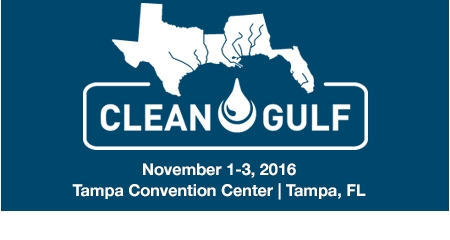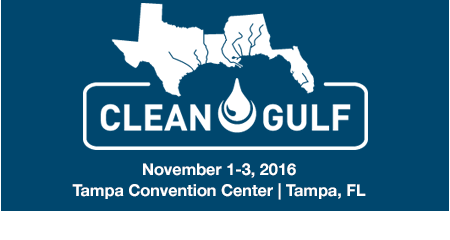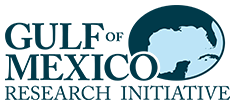
C-IMAGE at Clean Gulf
C-IMAGE is co-hosted a session with Exxon/Mobil at the Clean Gulf Conference this November in Tampa. This API-sponsored session gave workshop attendees a full review of what happens in the response community during an oil spill. The academic research community can play a role in the response effort, however it’s important to understand how the response operates, how priorities can shift during the response timeline and how researchers might be able to support the response effort.
The organizing committee would like to everyone that made time to attend. We had about 120 researchers, responders, contractors, state and government agents, and industry representatives at the session. This diverse group provided input for a spirited discussion for the last hour.
Our objectives were to:
• Promote understanding of oil spill response activities
• Discuss the current role of science data in response
• Foster relationships between the research and response community
• Discuss the appropriate role of academic research in a response
• Understand role of ‘operational research’ in response
The Details:
Where: The Clean Gulf Conference
Tampa, Florida
Tampa Convention Center
Title: Workshop: Oil Spill Response 101 and Exploring the Role of Environmental Research during Response
Tuesday, November 1
8:00AM-12:00PM
For a more detailed description, please visit:
Workshop materials are now available via active links
Agenda
- Safety minute
- Presenter/participant introductions
- Objectives of workshop
- Introduce questions to be considered during closing discussion (sticky dots)
Introduce background and goals of GoMRI (1 hour)
- Overview of GoMRI charter, objectives and advisory board, Kevin Shaw – GoMRI
- Highlight of research from workshop-participating GoMRI PIs
o CARTHE [10 min, Tamay Ӧzgӧkmen]- not available for review
- Introduction to SeaGrant’s Oil Spill Outreach Team
Introduction to Oil Spill Response (1.5 hour)
- Incident Command System (ICS), Brad Benggio, NOAA
- History
- Structure
- Roles and responsibilities
- Planning P
- Communications (JIC)
- ‘Typical’ responses and use of environmental science, Ed Levine, NOAA
- How science is used in response
- Response scale
- Response time line (revisit planning P)
- Key environmental roles; EUL, EU, SSC
- Natural resource damage assessment (NRDA), Andy Tirpak, TPW
- Background
- Separate from response
- Oil spill response tactics
- Prevention is primary tool
- Mechanical, Michael Hunt, Chevron
- Monitor
- In situ burn, Victoria Broje, Shell
- Dispersants
- Net Environmental Benefit Analysis (NEBA), Thomas Coolbaugh, ExxonMobil
- What is NEBA and how is it used in response
Exploring the role of research in a response (1 hour)
- Report out on what has already been done in this area, Charlie Henry, NOAA
- Science Action Network
- Harvard National Preparedness Leadership Initiative
- A moderated discussion on:
- Understanding ‘operational research’
- Where the current research fits in the response world (i.e., can the research be applied to a response?)
- Is there additional research to be considered to support response objectives?
- What is the role for the academic researcher in response?
- Can researchers have roles as advisors?
The Steering Committee has complied a list of useful links that can be used to supplement the material presented in this workshop. The list highlights partnerships from federal, state, and private entities. While not exhaustive, the list is a meaningful starting point.
NOAA Office of Response and Restoration
http://response.restoration.noaa.gov
EPA Oil Spills Prevention and Preparedness Regulations
https://www.epa.gov/oil-spills-prevention-and-preparedness-regulations
US National Response Team
https://nrt.org/
Florida Fish and Wildlife Conservation Commission
http://myfwc.com/research/gis/oil-spill/grp/
TGLO Oil Spill
http://www.glo.texas.gov/coast/oil-spill/overview/
API Oil Spill Prevention + Response
http://www.oilspillprevention.org/
IPIECA and IOGP Oil Spill Resources
http://www.oilspillresponseproject.org/
IOGP Arctic Response Technology Oil Spill Preparedness
http://www.arcticresponsetechnology.org/
ITOPF
http://www.itopf.com/
EMSA Oil Spill Response
http://www.emsa.europa.eu/oil-spill-response/oil-recovery-vessels.html
IPIECA Oil Spill Preparedness
http://www.ipieca.org/focus-area/oil-spill-preparedness
USCG Area Contingency Plans
https://homeport.uscg.mil/mycg/portal/ep/programView.do?channelId=-18361&programId=88121&programPage=%2Fep%2Fprogram%2Feditorial.jsp&pageTypeId=13489
BSEE Oil Spill Response Research
https://www.bsee.gov/what-we-do/oil-spill-preparedness/oil-spill-response-research
BOEM Oil Spill Research Efforts
http://www.boem.gov/Environmental-Stewardship/Environmental-Assessment/Oil-Spill-Modeling/Oil-Spill-Research-Efforts.aspx
The Steering Committee would also like to acknowledge previous workshops and reports that are aligned with the mission of this one:
1. JITF Oil Spill Preparedness and Response report (Nov 2011)
https://www.uscg.mil/iccopr/files/OSPR%20JITF%20Project%20Progress%20Report_Final_113011.pdf
2. Coordinating R&D on Oil Spill Response in the Wake of Deepwater Horizon March 22-24, 2011, Baton Rouge, LA
https://crrc.unh.edu/sites/crrc.unh.edu/files/media/docs/Publications/rdworkshop-report_final2011.pdf
3. Discussion on Research Priorities in Relation to Federal Oil Spill Response and Restoration, June 27-28, 2013, St. Petersburg, FL
https://crrc.unh.edu/sites/crrc.unh.edu/files/gomri_implications_meeting_report_final3.pdf
4. Bridging the Gap Between Oil Spill Researchers and Responders Workshop April 14, 2015, Port Aransas, TX
https://gulfseagrant.wordpress.com/oilspilloutreach/presentations/oil-spill-science-seminar-bridging-the-gap/



